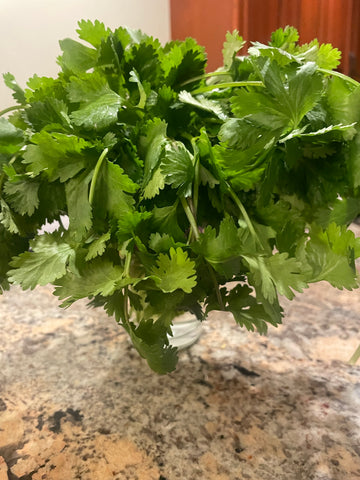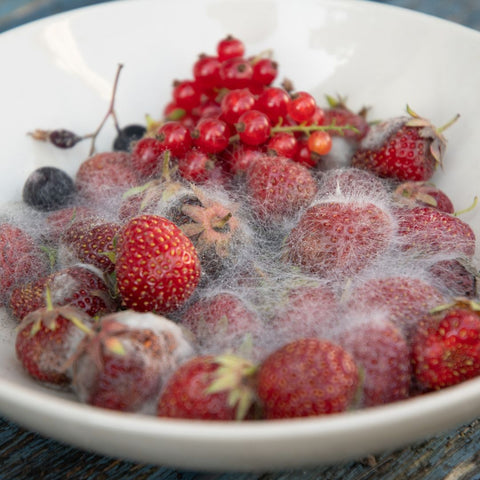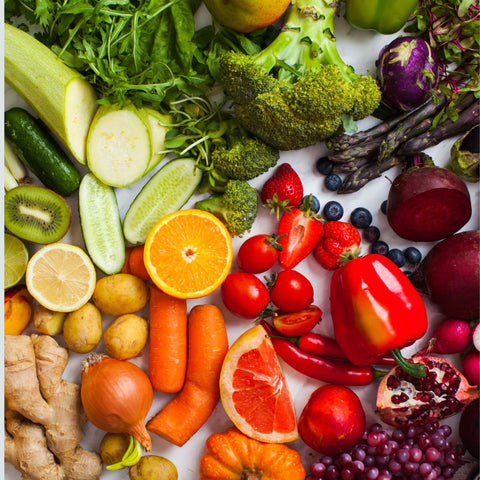Did you know that in the US, we throw away a staggering 80 million tones of food each year?
Yes, that's right. Approximately 40% of the food produced ends up wasted and there are multiple reasons at multiple steps in the food journey right from farms to our plates.
It's a sobering reality, especially when we consider that many people live in food insecurity, unsure of where their next meal will come from. Imagine the immense amount of water, resources, and effort that went into producing that food, shipping and packaging that food, finally coming on our dinner tables, it's a very sad scenario to see it discarded so easily.

While food waste is a complex issue that can't be fully addressed in one blog, we can shed light on a few reasons why so much food is wasted and offer some simple tips for reducing spoilage at home, thus reducing some waste.
Broadly speaking, these are the some common reasons of food waste. People often buy too much food, or restaurants serve oversized portions, leading to excess that ends up in the trash. Additionally, stores may discard food that doesn't meet aesthetic standards or is nearing its sell-by date, even if it might be perfectly good to eat. Food waste also occurs during transportation and storage. Lastly, as consumers, if we don't use food in time, it can spoil and end up in the garbage.
Did you know that when food waste goes into the trash, it creates greenhouse gases in landfills? Organic matter decomposes and generates methane when left in landfills where there is no oxygen. However, if food waste is composted, it can become beneficial instead of harmful. But ofcourse, the best thing is to avoid food waste, compost it only when there is no option left to save it.
Now, here are some tips to help you store your food and increase its shelf life, thereby reducing waste:
1) Keep Fruits and Veggies Separate: Fruits produce ethylene gas, which can cause vegetables to spoil faster. Store them separately to prevent this. I believe many refrigerators mark their storage bins separately for Fruits and Vegetables, which can be a nice reminder.
2) Store in the Right Place: Refrigerator is not the best option for everything. Some fruits and veggies do best in the fridge, while others are better at room temperature. For example, store tomatoes, bananas, and avocados at room temperature, but keep leafy greens, berries, and most herbs in the fridge.
3) Store Herbs in Water: Treat herbs like fresh flowers by placing them in a jar or glass of water and storing them in the fridge. Change the water every few days to keep them fresh. I have to say they look beautiful too! And you can make use of your old mason jars lying around to store them.

4) Use Mesh Bags: Store vegetables like carrots, broccoli, and cauliflower in cotton mesh bags in the fridge to maintain moisture levels without causing excess condensation.
5) Wrap Leafy Greens: If you don't plan to use them in a few days after getting them, plan to wrap leafy greens like lettuce, spinach, and kale in paper before placing them in the container to absorb excess moisture and prolong freshness.
6) Keep Potatoes and Onions Separated: Store potatoes and onions in a cool, dry, and well-ventilated place, but keep them separate to prevent spoilage. Again, it's the ethylene gas that gets released from onions, and spoils the potatoes.
7) Keep Berries away from Moisture : Berries don’t like moisture! One option is to put a paper towel underneath in their container to soak any excess moisture. Another effective tip is storing them in airtight glass containers. And remember, do not wash them until you are ready to eat them.

8) Don't Wash Until Use: Washing fruits and veggies before storing them can introduce excess moisture, causing them to spoil more quickly. Wait to wash them until just before you plan to use them.
9) Check and Rotate: Regularly check your fridge and storage areas for signs of spoilage, and remove any bad produce immediately to prevent it from affecting the others. Remember one bad apple spoils the bunch? :-) Also, rotate your fruits and veggies so that older ones are used first.
10) Inspire others : Always great to share good tips and information with friends and family. Remember, small acts done by many can bring a big change!

I hope these tips help you reduce food spoilage and waste! If you have any other suggestions or comments, please do share.
Let's work together to tackle the issue of food waste, inspire others too and make a positive impact on our environment and society.

Leave a comment